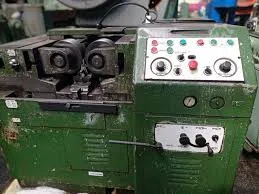
-
 Afrikaans
Afrikaans -
 Albanian
Albanian -
 Amharic
Amharic -
 Arabic
Arabic -
 Armenian
Armenian -
 Azerbaijani
Azerbaijani -
 Basque
Basque -
 Belarusian
Belarusian -
 Bengali
Bengali -
 Bosnian
Bosnian -
 Bulgarian
Bulgarian -
 Catalan
Catalan -
 Cebuano
Cebuano -
 Corsican
Corsican -
 Croatian
Croatian -
 Czech
Czech -
 Danish
Danish -
 Dutch
Dutch -
 English
English -
 Esperanto
Esperanto -
 Estonian
Estonian -
 Finnish
Finnish -
 French
French -
 Frisian
Frisian -
 Galician
Galician -
 Georgian
Georgian -
 German
German -
 Greek
Greek -
 Gujarati
Gujarati -
 Haitian Creole
Haitian Creole -
 hausa
hausa -
 hawaiian
hawaiian -
 Hebrew
Hebrew -
 Hindi
Hindi -
 Miao
Miao -
 Hungarian
Hungarian -
 Icelandic
Icelandic -
 igbo
igbo -
 Indonesian
Indonesian -
 irish
irish -
 Italian
Italian -
 Japanese
Japanese -
 Javanese
Javanese -
 Kannada
Kannada -
 kazakh
kazakh -
 Khmer
Khmer -
 Rwandese
Rwandese -
 Korean
Korean -
 Kurdish
Kurdish -
 Kyrgyz
Kyrgyz -
 Lao
Lao -
 Latin
Latin -
 Latvian
Latvian -
 Lithuanian
Lithuanian -
 Luxembourgish
Luxembourgish -
 Macedonian
Macedonian -
 Malgashi
Malgashi -
 Malay
Malay -
 Malayalam
Malayalam -
 Maltese
Maltese -
 Maori
Maori -
 Marathi
Marathi -
 Mongolian
Mongolian -
 Myanmar
Myanmar -
 Nepali
Nepali -
 Norwegian
Norwegian -
 Norwegian
Norwegian -
 Occitan
Occitan -
 Pashto
Pashto -
 Persian
Persian -
 Polish
Polish -
 Portuguese
Portuguese -
 Punjabi
Punjabi -
 Romanian
Romanian -
 Russian
Russian -
 Samoan
Samoan -
 Scottish Gaelic
Scottish Gaelic -
 Serbian
Serbian -
 Sesotho
Sesotho -
 Shona
Shona -
 Sindhi
Sindhi -
 Sinhala
Sinhala -
 Slovak
Slovak -
 Slovenian
Slovenian -
 Somali
Somali -
 Spanish
Spanish -
 Sundanese
Sundanese -
 Swahili
Swahili -
 Swedish
Swedish -
 Tagalog
Tagalog -
 Tajik
Tajik -
 Tamil
Tamil -
 Tatar
Tatar -
 Telugu
Telugu -
 Thai
Thai -
 Turkish
Turkish -
 Turkmen
Turkmen -
 Ukrainian
Ukrainian -
 Urdu
Urdu -
 Uighur
Uighur -
 Uzbek
Uzbek -
 Vietnamese
Vietnamese -
 Welsh
Welsh -
 Bantu
Bantu -
 Yiddish
Yiddish -
 Yoruba
Yoruba -
 Zulu
Zulu
High-Precision CNC Thread Rolling Machines for OEM Applications and Custom Manufacturing Solutions
The Advancements and Applications of OEM CNC Thread Rolling Machines
In the modern manufacturing landscape, the demand for precision and efficiency has led to the evolution of various machining technologies. One of the standout innovations in this field is the Original Equipment Manufacturer (OEM) CNC thread rolling machine. This piece of machinery has revolutionized the way threads are formed on metal components, offering significant advantages over traditional methods.
Understanding Thread Rolling
Thread rolling is a cold-forming process used to create threads on cylindrical parts. This method utilizes a pair of reciprocating dies that compress the material to form the desired thread profile, rather than cutting it, as seen in conventional machining processes. This results in stronger threads with superior surface finishes, making them ideal for applications in automotive, aerospace, and industrial sectors.
CNC Technology Integration
The integration of Computer Numerical Control (CNC) technology into thread rolling machines has further enhanced their capabilities. CNC systems allow for precise control over the machining process, ensuring that each thread produced meets specific tolerances and specifications. This level of accuracy is critical in industries where the integrity of fasteners is paramount. Moreover, CNC thread rolling machines can be programmed for various thread sizes and profiles, providing manufacturers with flexibility and the ability to quickly adapt to changing production requirements.
Advantages of OEM CNC Thread Rolling Machines
oem cnc thread rolling machine

One of the primary benefits of using OEM CNC thread rolling machines is their efficiency in reducing production time and costs. Traditional thread cutting methods can be time-consuming and labor-intensive, often resulting in a higher scrap rate due to meticulous adjustments needed for precision. In contrast, CNC thread rolling machines streamline the manufacturing process by automating many of these steps. This not only speeds up production but also reduces material waste, leading to cost savings.
The durability and strength of rolled threads are other significant advantages. The cold-forming nature of thread rolling enhances the material’s grain structure, resulting in threads that are more resilient to wear and stress. This is particularly beneficial in high-stress applications, such as in the automotive and aerospace industries, where reliability and safety are crucial.
Applications Across Industries
OEM CNC thread rolling machines find applications across a broad spectrum of industries. In the automotive sector, they are used to manufacture wheel bolts, engine components, and various fasteners that require high strength and durability. The aerospace industry relies on these machines for critical components where precision and reliability are non-negotiable.
Furthermore, in the fastener manufacturing industry, the ability to produce custom thread profiles quickly and efficiently makes CNC thread rolling machines indispensable. They allow manufacturers to meet market demands while maintaining high quality standards.
Conclusion
In conclusion, OEM CNC thread rolling machines represent a significant advancement in machining technology, offering numerous advantages, including increased efficiency, superior thread strength, and flexibility in production. As industries continue to evolve and demand greater precision and reliability, the importance of such technology will only continue to grow. Investing in OEM CNC thread rolling machines not only enhances production capabilities but also positions manufacturers to thrive in a competitive marketplace. The ongoing development of these machines promises to drive innovation and efficiency in manufacturing, paving the way for future advancements in the industry.
